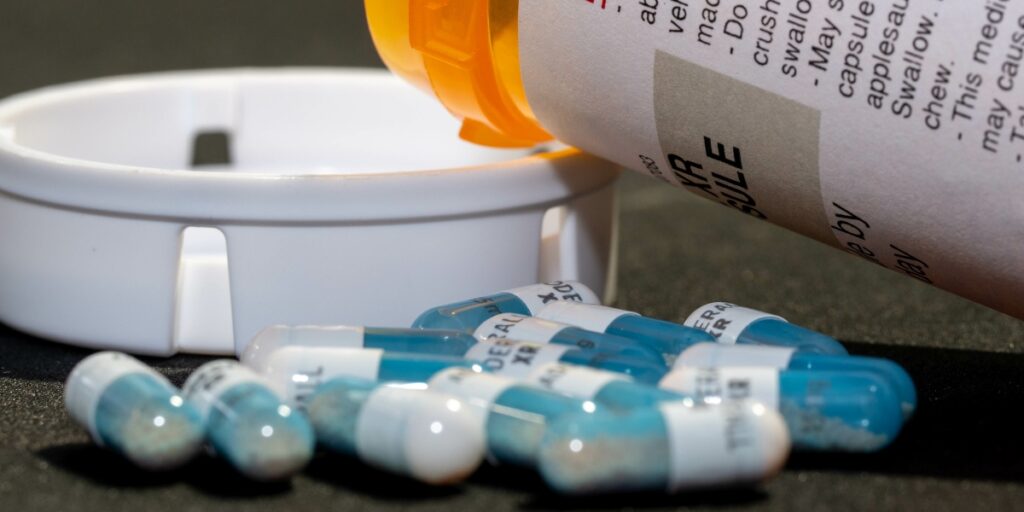Is Adderall Bad for Your Heart?

As a central nervous system stimulant, Adderall has direct, sometimes strenuous effects on the heart; for people with pre-existing conditions or those abusing Adderall, those effects can cause severe damage and, in rare cases, sudden death.
Unlike other prescription medications for people with ADHD, like Strattera, which needs to build up to workable levels in the system, Adderall has immediate physical effects, especially on the cardiovascular system. Those effects can be a one-time or short-term thing, or they can build up and become more dangerous with prolonged Adderall addiction and abuse.
What Is Adderall?
Adderall is a prescription drug used to treat attention deficit hyperactivity disorder (ADHD) and certain sleep disorders. Chemically, Adderall combines amphetamines and dextroamphetamine, both stimulants.
Adderall or other stimulant medications act as central nervous system stimulants to increase focus and mood regulation for people taking them as prescribed. However, even people taking ADHD medications will experience physical side effects, so medical professionals will screen for pre-existing conditions before using prescription stimulants to treat anything.
After concerns from parents of children with ADHD and adult patients, the American Heart Association (AHA) and Food and Drug Administration (FDA) conducted multiple studies. They established extensive guidelines for cardiac testing to ensure safe practices for doctors who prescribe Adderall and the people taking it.
Adderall is a Schedule II controlled substance in the United States, meaning it has a high potential for people to abuse the drug and develop an Adderall addiction. Although it is also a Schedule II drug with a similar-sounding chemical name, methamphetamines (crystal meth) are not similar to Adderall.
Abusing Adderall
Abusing Adderall includes taking higher doses than the prescribed amount, taking it without a prescription, mixing it with alcohol or other drugs, or snorting Adderall to experience the effects quicker and more intensely.
Most people abuse Adderall because they believe it will give them an academic edge by increasing their concentration and memory. Mixing alcohol and Adderall is another common form of abuse because the stimulant properties of the medication seem to offset the sedative effects of alcohol; however, this causes immense strain on the body and increases the risk of alcohol poisoning. There have been cases of otherwise healthy people suffering a heart attack, also called a myocardial infarction, after mixing high doses of Adderall and alcohol.
Adderall abuse is most common among young adults and college students, but people of all ages have experienced uncomfortable and sometimes life-threatening side effects.
Like most forms of prescription drug abuse, Adderall abuse leads to tolerance, which requires increasingly high doses or taking it more frequently to achieve the same effects, thereby increasing the risk of health and heart problems.

Is Adderall Bad for Your Heart?
Adderall, more specifically, Adderall abuse can be bad for your heart health. As a stimulant, Adderall causes an increase in blood pressure and heart rate, leading to other complications and stress to the person’s heart and entire cardiovascular system.
Immediate cardiovascular side effects of Adderall include:
- Chest pain
- Tachycardia, or a rapid heart rate
- Increased blood pressure
- Arrhythmia or heart palpitations, or an irregular heartbeat
- Shortness of breath
- Increased body temperature and sweating
Most of these short-term symptoms will resolve once Adderall leaves the system. However, very high doses or long-term abuse can increase the risk of heart attack, stroke, damaged blood vessels, and blood clots. People who abuse Adderall for weight loss face additional risks, as drastic weight loss and stimulant abuse cause immense strain on the heart.
The clinical name for heart damage that occurs over time is cardiomyopathy. This damage slowly weakens the heart muscle, making it more challenging to function correctly and pump blood through the rest of the body.
Some of the leading causes and risk factors for cardiomyopathy include:
- Long-term high blood pressure
- Long-term raised heart rate
- Malnutrition
- Chronic stimulant or amphetamine use
- Family history of heart conditions
Adderall abuse can cause or worsen the above-listed risk factors for heart damage and complications. There are documented cases of Adderall-related cardiomyopathy. Heart failure, heart attacks, and possibly sudden death are likely without intervention.
Can Adderall Cause Heart Attacks?
Adderall can cause heart attacks and what medical professionals call “cardiovascular events,” especially in people with pre-existing conditions like high blood pressure, genetic heart conditions, or heart disease.
Cardiovascular event is a broad term that covers any interference with the heart’s function and blood flow, which can ultimately lead to heart attacks and sudden death in some cases. Heart attacks are one of the most severe cardiac events a person can experience, but they are not always fatal if they receive medical attention.
Symptoms of a heart attack include:
- Chest pain
- Lightheadedness or dizziness
- Difficulting breathing
- Pain in the jaw, back, or neck
- Sweating
- Nausea or vomiting
Some of these symptoms are similar to a panic attack or Adderall overdose. Even in perfectly healthy people, an Adderall overdose can lead to a heart attack, so any side effects out of the ordinary must get immediate medical attention. Most Adderall overdoses are accidental because someone took too much, had an undiagnosed heart condition, or had an adverse reaction to mixing substances.
In addition to the symptoms listed above, signs of Adderall overdose may include the following:
- Anxiety
- Tremors and shaking
- Confusion
- Anxiety
- Difficulting speaking
- Blurry vision
- Abdominal pain
- Loss of consciousness
Snorting Adderall, smoking it, and combining it with other stimulants or alcohol all increase the risk of heart attack, respiratory arrest, or accidental overdoses.
You should immediately call 911 or get to the nearest emergency department if someone has a health emergency.
The average person can do nothing to stop an Adderall overdose, heart problems, or a heart attack. Being honest with medical professionals about what you or the person suffering from heart problems has taken is essential so they can provide the proper treatment.

Adderall Addiction Treatment in Northridge, California
Adderall addiction can feel near impossible to overcome, especially for people with ADHD who feel they need it to function. Regardless of how you came to abuse prescription stimulants, a life free from addiction is possible.
At Northridge Addiction Treatment Center, we work closely with you to uncover the roots of addiction and heal the physical and mental toll it has taken on you. We offer onsite, supervised medical detox supplemented by gourmet chef-catered meals to ensure your body is nurtured and recovering to ensure your safety and well-being during withdrawal.
At NATC, we only use evidence-based treatments and therapies, such as dual diagnosis and cognitive-behavioral therapy, ensuring you learn the skills to thrive and flourish in life-term recovery, including alternate ways to manage ADHD and triggers.
Contact us now to speak to our treatment specialists and begin your path toward a meaningful recovery. Reclaim your life today.
Find Meaningful Recovery
Our caring and compassionate specialists are eager to help you comfortably navigate this journey to recovery. Our individualized treatment plan, programs, and therapies may be a perfect match for you or your loved one. Let us assist you in living the happy life you deserve. It starts with a phone call.




